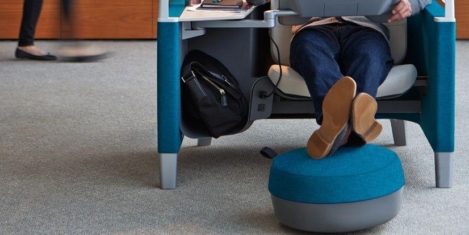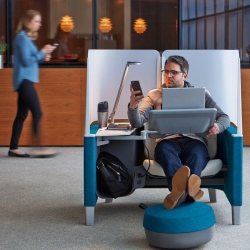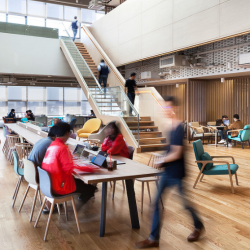December 4, 2020
Employee happiness and loyalty tested by furlough schemes
 A newly commissioned survey of 1,000 people conducted by Censuswide on behalf of KnowBe4, claims that almost a third of respondents (28 percent) feel less loyal to their employer post-furlough. Of these individuals, 70 percent conceded to either not feeling supported by their employer, receiving little to no information or guidance prior to returning to work and/or did not receive regular communications from them. In fact, the actions employers take, or lack thereof, to ease the transition from furlough appears to play a significant role in employee sentiments upon their return to work. (more…)
A newly commissioned survey of 1,000 people conducted by Censuswide on behalf of KnowBe4, claims that almost a third of respondents (28 percent) feel less loyal to their employer post-furlough. Of these individuals, 70 percent conceded to either not feeling supported by their employer, receiving little to no information or guidance prior to returning to work and/or did not receive regular communications from them. In fact, the actions employers take, or lack thereof, to ease the transition from furlough appears to play a significant role in employee sentiments upon their return to work. (more…)









 According to
According to 
 A large number of British companies companies say they plan to install monitoring software of some kind to keep an eye on employees working from home, according to a new survey. Around 20 percent of employers said their firms have either implemented, or plan to implement, online software which monitors their remote workers.
A large number of British companies companies say they plan to install monitoring software of some kind to keep an eye on employees working from home, according to a new survey. Around 20 percent of employers said their firms have either implemented, or plan to implement, online software which monitors their remote workers. 
 The location of a potential employer’s workplace is becoming more important to workers – despite a surge in people working remotely, according to outplacement firm
The location of a potential employer’s workplace is becoming more important to workers – despite a surge in people working remotely, according to outplacement firm 
 The pandemic has seriously altered how we work. According to statistics published by the
The pandemic has seriously altered how we work. According to statistics published by the 
 Let the dogs bark, let the kid dance, admit that you are in the basement because your spouse is occupying the kitchen. It takes bravery to let the new reality shine. In previous circumstances, your dog starting to bark like crazy while you are on a work video call with the CEO of a company may have been mortifying. But now, instead, the shared reality of both participants working from home gives employees and employers the chance to gain a little more insight into each other’s lives.
Let the dogs bark, let the kid dance, admit that you are in the basement because your spouse is occupying the kitchen. It takes bravery to let the new reality shine. In previous circumstances, your dog starting to bark like crazy while you are on a work video call with the CEO of a company may have been mortifying. But now, instead, the shared reality of both participants working from home gives employees and employers the chance to gain a little more insight into each other’s lives. 
 Staff need on average three days a week (2.91) in the office to achieve maximum productivity, according to a new study by
Staff need on average three days a week (2.91) in the office to achieve maximum productivity, according to a new study by 
 Companies are facing complex performance challenges as the COVID-19 resurgence heightens the need to reinvigorate employee engagement.
Companies are facing complex performance challenges as the COVID-19 resurgence heightens the need to reinvigorate employee engagement. 
 A survey issued by architecture, design, and planning firm
A survey issued by architecture, design, and planning firm 
 As many of us cope with yet another lockdown, optimism is easy to misplace but, for disabled workers, this could result in monumental change for future employment. On the month commencing the 25th anniversary of the Disability Discrimination Act and the run-up to International Day of Disabled Persons, could this be the final push for change? As we swing in and out of remote-working, whether you love it or loathe it, one thing is abundantly clear – it can be done. Something that the
As many of us cope with yet another lockdown, optimism is easy to misplace but, for disabled workers, this could result in monumental change for future employment. On the month commencing the 25th anniversary of the Disability Discrimination Act and the run-up to International Day of Disabled Persons, could this be the final push for change? As we swing in and out of remote-working, whether you love it or loathe it, one thing is abundantly clear – it can be done. Something that the 
 With a new national lockdown, the situation in the UK remains unpredictable and complicated, and renewed pressure to work from home has forced many organisations to reverse their back-to-work plans, according to a new study from
With a new national lockdown, the situation in the UK remains unpredictable and complicated, and renewed pressure to work from home has forced many organisations to reverse their back-to-work plans, according to a new study from 








December 3, 2020
Hybrid working presents us with a once in a generation opportunity
by Michael Cockburn • Comment, Coworking, Flexible working, Technology